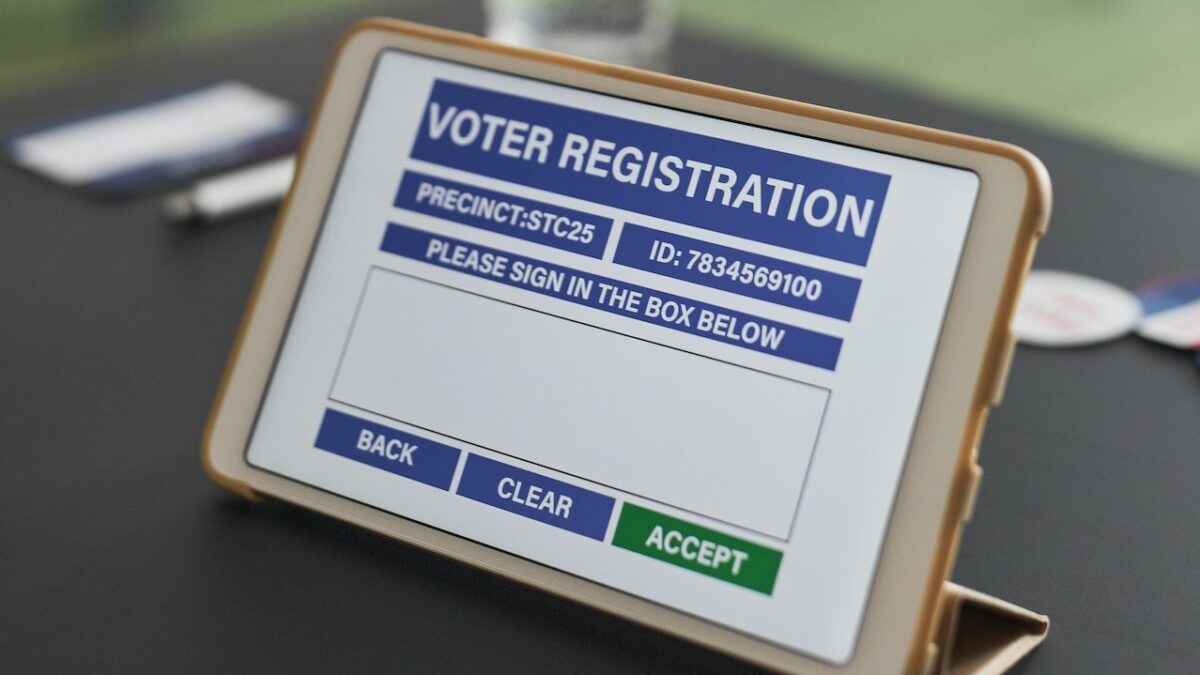
Ohio and Iowa are the latest states to withdraw from the Electronic Registration Information Center (ERIC), an interstate voter list maintenance group controlled by Democratic operatives, after a meeting of its board failed to deliver the aforementioned states’ requested reforms.
The two midwestern states follow in the steps of Florida, Missouri, and West Virginia, which withdrew from the alliance in early March over ERIC’s failure to remove its founder, Democrat operative David Becker, from its board, and its requirement that member states conduct voter registration outreach to eligible but unregistered residents in their states. Louisiana and Alabama withdrew last year.
In response to Florida, Missouri, and West Virginia’s withdrawal from the group, Ohio Secretary of State Frank LaRose sent a letter to ERIC threatening Ohio’s departure if the board did not remove Becker — or “ex-officio members” — from its bylaws and cut the requirement for states to conduct partisan voter registration outreach. Instead, states should utilize ERIC’s data-sharing services “in the manner which they believe best serves their local interests,” LaRose argued.
While Becker seemingly complied with one of LaRose’s demands by tweeting that he would not seek renomination to ERIC’s board, ERIC refused to execute LaRose’s other reforms during a March 17 board meeting.
At the meeting, two proposals were put to a vote: changing ERIC’s bylaws to allow states to choose how they utilize ERIC’s data, and pairing the voter registration outreach requirement to a report that helps states catch double voting. Both proposals failed to pass because ERIC’s bylaws require an 80 percent majority before making a change.
“ERIC has chosen repeatedly to ignore demands to embrace reforms that would bolster confidence in its performance, encourage growth in its membership, and ensure not only its present stability but also its durability,” LaRose wrote in a letter announcing Ohio’s withdrawal on March 17. “Rather, you have chosen to double-down on poor strategic decisions, which have only resulted in the transformation of a previously bipartisan organization to one that appears to favor only the interests of one political party.”
Iowa Secretary of State Paul Pate told Politico that the failed votes prevent ERIC members from doing what’s best for their states.
“Ultimately, the departure of several key states and today’s vote is going to impact the ability for ERIC to be an effective tool for the State of Iowa,” Pate said. “My office will be recommending resigning our membership from ERIC.”
As previously reported by The Federalist, ERIC is a voter roll management system used by nearly 30 states and the District of Columbia. It was created under the guise of helping states clean their rolls — i.e., remove dead and duplicate registrants — but does more to inflate them.
As a part of the alliance, member states are required to contact eligible but unregistered residents to register to vote. ERIC creates these lists of unregistered residents and sends them to member states to contact themselves. Given ERIC’s partisan origins and alliance with the Center for Election Innovation and Research (CEIR) — one of two groups that funneled $419 million in grants from Facebook founder Mark Zuckerberg to mostly-blue areas of swing states during the 2020 election — it’s likely ERIC targets Democrat-leaning residents to register.
Despite ERIC’s obvious ties to the left, corporate media outlets are characterizing states that have withdrawn from the organization and its critics as “conspiracy theorists” who are peddling disinformation. Thankfully, states like Ohio and Iowa have ignored this intimidation campaign.
“I cannot justify the use of Ohio’s tax dollars for an organization that seems intent on rejecting meaningful accountability, publicly maligning my motives, and waging a relentless campaign of misinformation about this effort,” LaRose wrote. “Additionally, I cannot accept the board’s refusal – for a third time – to adopt basic reforms to the use of ERIC’s data-sharing services.”
Alaska and Texas are two more member states considering withdrawing from ERIC.









